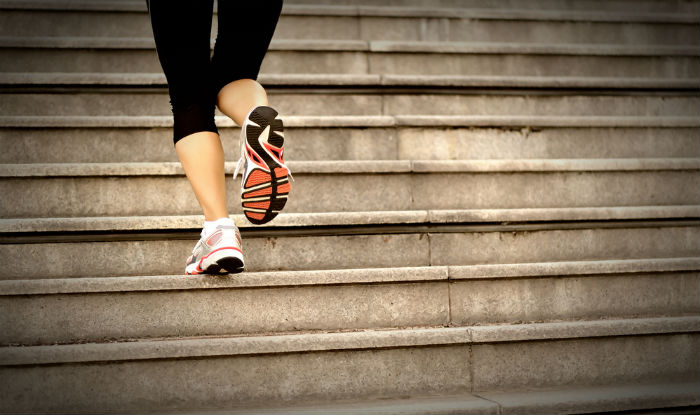You already know that climbing stairs is healthy and you should take stairs more often. A study published in Menopause, a journal of The North American Menopause Society (NAMS), has revealed exactly how healthy it is to take the stairs. As per the study, climbing stairs provide the benefits of both resistance training and aerobic exercise. If you are not interested in going to a gym for the resistance training or do aerobics, then start climbing the stairs. It will lower your high blood pressure and increase the strength of your leg muscles, says the study.
The 12-week research included postmenopausal women suffering from high blood pressure or hypertension. Due to the deficiency of estrogen in postmenopausal women, the risk of muscle and vascular issue increase. During their training, they climbed 192 steps up to five times a day and four times a week. The study showed that the training improved the women’s leg strength and lowered their high blood pressure.

The stairs climbing regime also help in losing fat, lowering high blood pressure, improving lipid profile, reduce arterial stiffness and lower the risk of osteoporosis. The Executive Director at the North American Menopausal Society in Cleveland, US, JoAnn Pinkerton said, “This study demonstrates how simple lifestyle interventions such as stair climbing can be effective in preventing or reducing the negative effects of menopause and age on the vascular system and leg muscles of postmenopausal women with hypertension.”
The study showed that climbing stairs lowered blood pressure, arterial stiffness and improved strength of leg muscles in postmenopausal women with stage 2 hypertension. The result shows that women can climb stairs if they do not have access to a gym or other ways to exercise and fight the negative effects of menopause.
There are also other ways to fight other negative effects of menopause. According to a study, hormone therapy can help in preventing depression during menopause. The risk of depression doubles between the age of 45 and 60 when the reproductive hormones of a woman drop. As per earlier research, hormone therapy can be used to ease the depression symptoms.






















